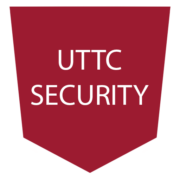Confined spaces may contain hazards that can injure workers or quickly lead to death. Untrained and ill-equipped rescuers can easily become victims themselves. United Tribes Technical College departments must follow the requirements of the Confined Space Entry Program to ensure personnel working in or near confined spaces are protected from harm.
The Confined Space Entry Program applies to any United Tribes Technical College department that has space(s) that may potentially be hazardous when entered. A confined space is one configured so that a person can fully enter and work but is not designed for continuous human occupancy and has restricted or limited means of entry or exit.
Examples of confined spaces at United Tribes Technical College may include, but are not limited to:
- Boilers
- Sewers
- Vessels and Tanks
- Attics, crawlspaces
- Air handling units
- Sumps and pits
- Excavations
Confined spaces may contain a hazardous atmosphere, engulfment hazards or other hazards, such as electrical, mechanical and fall from a height. These spaces require entry permits that address the hazards, mitigations and required approvals.
Hazards may also be introduced by activities performed inside the space. Use of chemicals, painting, cleaning, grinding or sanding all create atmospheric hazards that can cause injury or illness without adequate ventilation or other controls. Hot work (e.g., welding, cutting, grinding, or brazing) in a confined space may release toxic gases or fumes.
United Tribes Technical College departments that do not expect to enter any confined spaces are not required to develop a confined space entry plan. If a department or its contractor needs to enter a confined space, they can contact the UTTC Safety & Security Director, for more information about the space.
Lockout/tagout (LOTO) procedures are designed to prevent accidental startup of machines or equipment and to prevent the release of stored energy during servicing or maintenance. Use of the general lockout/tagout procedure that involves applying locks and/or tags as direct controls (as can be seen in the procedure below), ensures that equipment is isolated from energy sources and injuries are prevented.
- Notify appropriate affected employees that servicing, or maintenance is required on a machine or equipment and that the machine or equipment must be shut down and locked out to perform the servicing or maintenance.
- If the machine or equipment is operating, shut it down by the normal stopping procedure (depress the stop button, open switch, close valve, etc.).
- De-activate the energy isolating device(s) (such as switches, valves, circuit breakers, etc.) so that the machine or equipment is isolated from the energy source(s).
- Lock or tag out the energy isolating device(s) with assigned individual lockout/tagout device(s).
Prior to restoring normal operations, prepare and check the area around the machine or equipment to ensure that no one is exposed to hazards or injury.
- After all tools have been removed from the machine or equipment, guards reinstalled and employees notified, remove all lockout or tagout devices.
- Each person removes their own lock and tag. It is a safety violation to remove another person’s lock and tag.
- Disengage the energy isolating devices to restore energy to the machine or equipment.
The contractor assigned to the project shall follow the procedures in the lockout tagout guidelines.
- The contractor will use the locks and tags specific to their company. The contractor is responsible for removing their own locks and tags when the work is completed.
Training is available for the lockout tagout guidelines. Contact the Safety & Security Department at (701) 221-1700 to schedule training.
Annual Security Reports
Daily Crime & Fire Logs
| Name | Downloads | Version | Last Modified |
|---|---|---|---|
|
2021 May Daily Crime Log
|
671 downloads | 1.0 | 10-06-2021 8:13 |
|
2021 March Daily Crime Log
|
688 downloads | 1.0 | 18-05-2021 13:43 |
|
2021 June Daily Crime Log
|
628 downloads | 1.0 | 30-08-2021 11:14 |
|
2021 July Daily Crime Log
|
608 downloads | 1.0 | 30-08-2021 11:15 |
|
2021 February Daily Crime Log
|
672 downloads | 1.0 | 18-05-2021 13:43 |
|
2021 August Daily Crime Log
|
641 downloads | 1.0 | 08-09-2021 16:14 |
|
2021 April Daily Crime Log
|
695 downloads | 1.0 | 18-05-2021 13:43 |
|
2020 September Daily Crime Log
|
718 downloads | 1.0 | 18-05-2021 13:43 |
|
2020 November Daily Crime Log
|
727 downloads | 1.0 | 18-05-2021 13:43 |
|
2020 March Daily Crime Log
|
675 downloads | 1.0 | 18-05-2021 13:43 |
|
2020 June Daily Crime Log
|
669 downloads | 1.0 | 18-05-2021 13:43 |
|
2020 July Daily Crime Log
|
672 downloads | 1.0 | 18-05-2021 13:43 |
|
2020 January Daily Crime Log
|
664 downloads | 1.0 | 18-05-2021 13:43 |
|
2020 February Daily Crime Log
|
693 downloads | 1.0 | 18-05-2021 13:43 |
|
2020 December Daily Crime Log
|
679 downloads | 1.0 | 18-05-2021 13:43 |
|
2020 August Daily Crime Log
|
698 downloads | 1.0 | 18-05-2021 13:43 |
|
2020 April Daily Crime Log
|
668 downloads | 1.0 | 18-05-2021 13:43 |
|
2019 September Daily Crime Log
|
656 downloads | 1.0 | 18-05-2021 13:43 |
|
2019 October Daily Crime Log
|
677 downloads | 1.0 | 18-05-2021 13:43 |
|
2019 November Daily Crime Log
|
734 downloads | 1.0 | 18-05-2021 13:43 |
|
2019 May Daily Crime Log
|
693 downloads | 1.0 | 18-05-2021 13:43 |
|
2019 June Daily Crime Log
|
692 downloads | 1.0 | 18-05-2021 13:43 |
|
2019 July Daily Crime Log
|
689 downloads | 1.0 | 18-05-2021 13:43 |
|
2019 December Daily Crime Log
|
645 downloads | 1.0 | 18-05-2021 13:43 |
|
2019 August Daily Crime Log9
|
695 downloads | 1.0 | 18-05-2021 13:43 |
|
2019 April Daily Crime Log
|
777 downloads | 1.0 | 18-05-2021 13:43 |
|
2021 January Daily Crime Log
|
639 downloads | 1.0 | 18-05-2021 13:43 |
|
2020 October Daily Crime Log
|
670 downloads | 1.0 | 18-05-2021 13:43 |
|
2020 May Daily Crime Log
|
676 downloads | 1.0 | 18-05-2021 13:43 |
| Name | Downloads | Version | Last Modified |
|---|---|---|---|
|
2021 May Daily Fire Log
|
632 downloads | 1.0 | 10-06-2021 8:15 |
|
2021 March Daily Fire Log
|
625 downloads | 1.0 | 18-05-2021 14:34 |
|
2021 June Daily Fire Log
|
605 downloads | 1.0 | 30-08-2021 11:20 |
|
2021 July Daily Fire Log
|
598 downloads | 1.0 | 30-08-2021 11:21 |
|
2021 January Daily Fire Log
|
603 downloads | 1.0 | 18-05-2021 14:34 |
|
2021 February Daily Fire Log
|
627 downloads | 1.0 | 18-05-2021 14:34 |
|
2021 August Daily Fire Log
|
595 downloads | 1.0 | 08-09-2021 16:15 |
|
2021 April Daily Fire Log
|
640 downloads | 1.0 | 18-05-2021 14:34 |
|
2020 October Daily Fire Log
|
634 downloads | 1.0 | 18-05-2021 14:33 |
|
2020 November Daily Fire Log
|
627 downloads | 1.0 | 18-05-2021 14:33 |
|
2020 May Daily Fire Log
|
618 downloads | 1.0 | 18-05-2021 14:33 |
|
2020 March Daily Fire Log
|
640 downloads | 1.0 | 18-05-2021 14:33 |
|
2020 June Daily Fire Log
|
711 downloads | 1.0 | 18-05-2021 14:33 |
|
2020 July Daily Fire Log
|
650 downloads | 1.0 | 18-05-2021 14:33 |
|
2020 January Daily Fire Log
|
612 downloads | 1.0 | 18-05-2021 14:34 |
|
2020 February Daily Fire Log
|
673 downloads | 1.0 | 18-05-2021 14:33 |
|
2020 December Daily Fire Log
|
629 downloads | 1.0 | 18-05-2021 14:33 |
|
2020 August Daily Fire Log
|
655 downloads | 1.0 | 18-05-2021 14:33 |
|
2020 April Daily Fire Log
|
670 downloads | 1.0 | 18-05-2021 14:33 |
|
2019 October Daily Fire Log
|
639 downloads | 1.0 | 18-05-2021 14:33 |
|
2019 November Daily Fire Log
|
636 downloads | 1.0 | 18-05-2021 14:33 |
|
2019 May Daily Fire Log
|
640 downloads | 1.0 | 18-05-2021 14:33 |
|
2019 June Daily Fire Log
|
644 downloads | 1.0 | 18-05-2021 14:33 |
|
2019 July Daily Fire Log
|
655 downloads | 1.0 | 18-05-2021 14:33 |
|
2019 December Daily Fire Log
|
596 downloads | 1.0 | 18-05-2021 14:33 |
|
2019 August Daily Fire Log
|
623 downloads | 1.0 | 18-05-2021 14:33 |
|
2019 April Daily Fire Log
|
676 downloads | 1.0 | 18-05-2021 14:33 |
|
2020 September Daily Fire Log
|
650 downloads | 1.0 | 18-05-2021 14:33 |
|
2019 September Daily Fire Log
|
660 downloads | 1.0 | 18-05-2021 14:33 |
Hazard Communication Program
United Tribes Technical College is committed to providing a safe and healthy work environment for all employees, students and visitors. Individuals who work with or near hazardous substances need to be aware of the identity, potential physical and health hazards, and the safe work practices that can minimize exposure. To assure individual health and safety, and meet regulatory requirements, United Tribes Technical College developed the Chemical Hazard Communication (HazCom) Program to address how to classify chemical hazards, and communicate the hazards and safeguards required to protect individuals from exposure to those hazards.
The HazCom Program applies to all United Tribes Technical College employees, students and visitors on the UTTC campus where chemicals are used, transported, or stored.
Specific hazard communication regulations also apply to chemical manufacturers, distributors and importers. United Tribes Technical College must comply with these regulations when its researchers or others develop a new chemical or chemical product, including the development of safety data sheets (SDSs) and chemical labeling.

Bismarck, ND 58504
Phone: 701.255.3285
Toll Free: 888.643.8882
Equal Opportunity Provider



